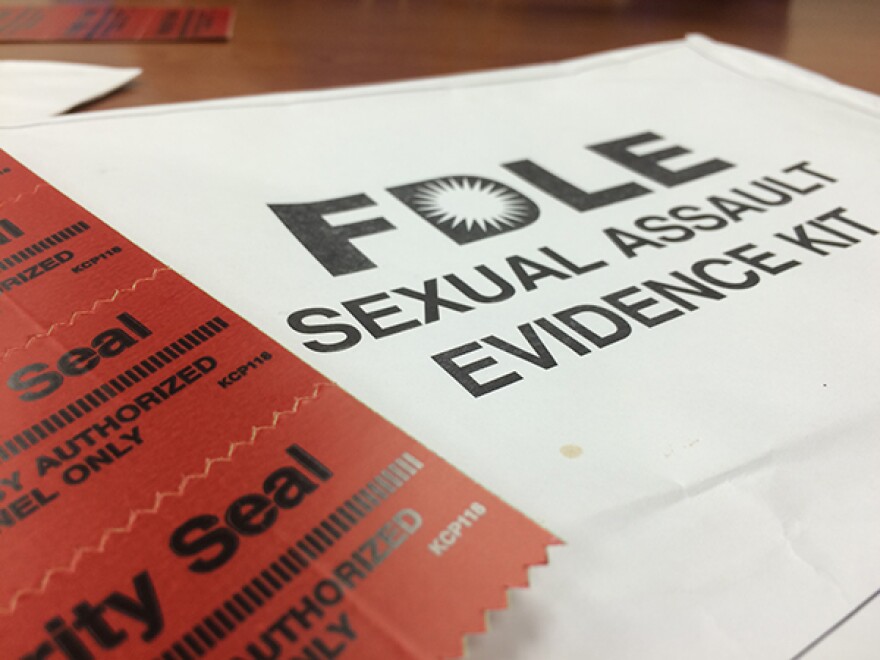There are nearly 11,000 untested rape kits in Florida, according to data released by the Florida Department of Law Enforcement earlier this week.
In North Central Florida, data showed that Citrus County had the highest number of untested rape kits that should have been submitted to the FDLE - 51 - followed by Marion County, which had 15 kits that should have been submitted for testing.
Altogether,Citrus County had 88 kits that it did not submit for analysis,and while Citrus County Sheriff’s Office spokesperson Heather Yates said she did not know how the FDLE determined that 51 of those kits should have been tested, she also explained why each of the 88 were not submitted.
In 32 cases, the victims did not want to press charges.
- In eight cases, the offender pleaded guilty.
- In 13 cases, the sheriff's office determined the accusations were unfounded.
- In three cases, the state attorney declined to file charges because there was not enough evidence or the allegations were sufficiently contradicted.
- In six cases, the victims were uncooperative. This included individuals who declined to speak to the police after the incident.
- In 15 cases, the sexual assault kits came from assisting agencies that lacked sufficient evidence to submit to the FDLE.
The remaining 11 cases were inherited by the Citrus County Sheriff’s Office when it took over the Crystal River Police Department in 2008, Yates said.
Most of these cases were never sent to FDLE because the victim did not want to be named, Yates said.
“If you have a case where you know who did it and they confessed versus one where you're not quite sure,” she said, “you’re going to send the one you're not quite sure [about] so that you can get [definitive] results.”
Lauren Lettelier, spokesperson for the Marion County Sheriff's Office, said: "That 15 [kits that the FDLE said should have been tested] is stuff that we were actually processing when they took the survey, but they were sent almost immediately after the survey was done. We don't have any kits here."
Sgt. David LaFont of the West Palm Beach Police Department has worked on sexual assault cases since 2001.
He said kits are not tested if an offender admits to rape, a sheriff does not give approval to send the kit or the lab refuses to accept the kit.
LaFont also said that most of the time there are over 1,000 cases backing up the system.
According to the FDLE, the Alachua County Sheriff’s Office submitted all of its kits for analysis. Twenty-four kits were submitted from non-reporting victims who received medical treatment but did not file charges.
However, Yates said the FDLE does not always accept sexual assault exams from non-reporting victim cases.
“Some agencies do not submit those because there’s not a victim there [to press charges],” said Art Forgey, the Alachua County Sheriff’s public information officer.
“In our case, we submit those because we believe that just because the victim didn’t want to report it, a crime still occurred,” Forgey said.
The DNA evidence on file can be useful in identifying a suspect in a separate case.
Yates said Citrus County has become more aggressive about submitting its kits.
“Now we will send the kit in, even though person has been convicted,” she said. “Maybe they’ll be able to say, 'Oh, we have another victim here.’”
Yates also said the FDLE needs more funding to lessen the backlog by hiring more personnel to examine sexual assault kits more quickly.
“There is a manpower issue, and you don't want to overwhelm them,” Yates says. “If they had unlimited resources, that would be wonderful.”

